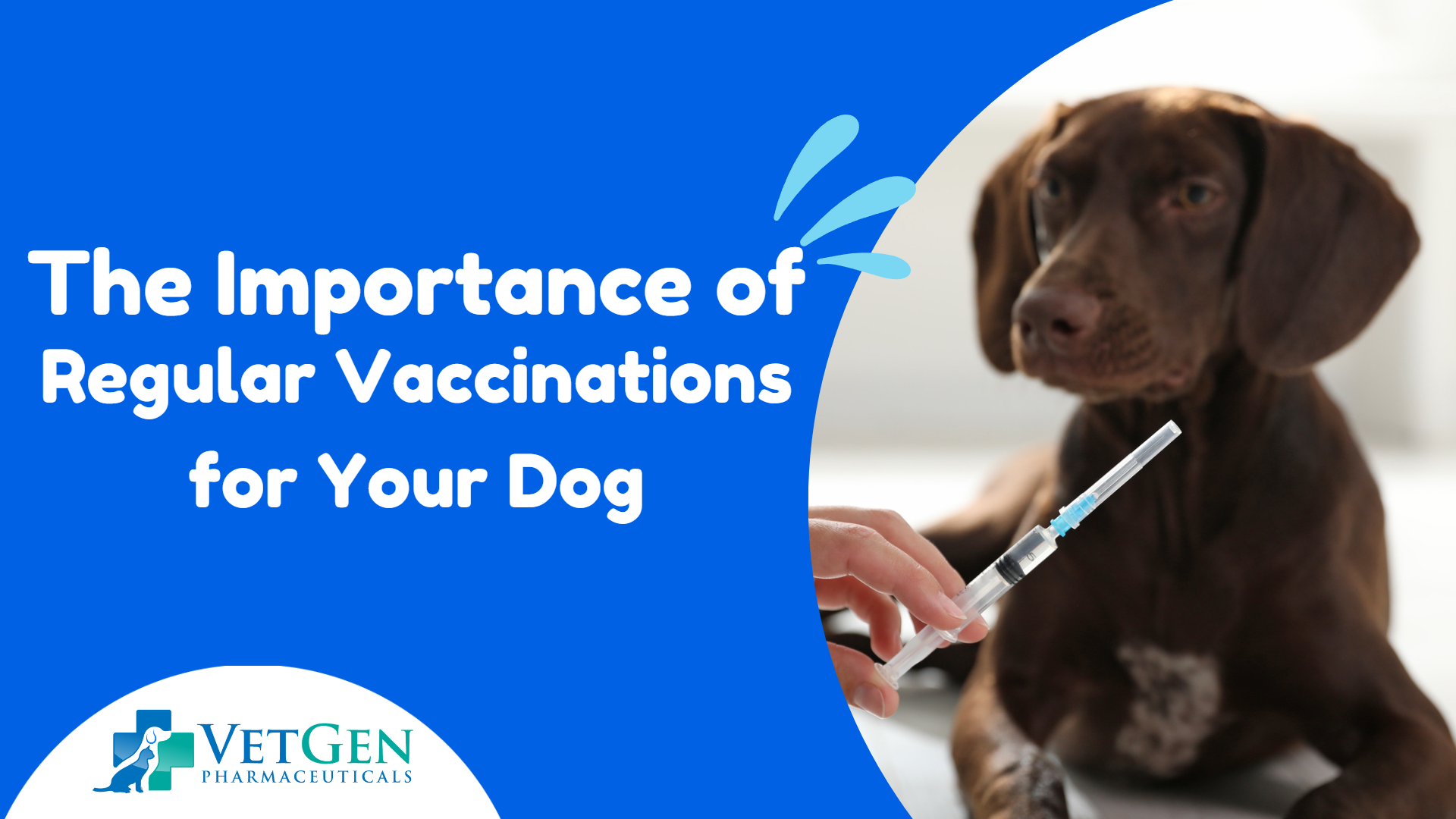Regular vaccination helps to equip your dog with the right defensive mechanism to battle diseases. Not only does it keep your canine buddy safe from dangerous and deadly diseases, but it also helps to keep them safe from other pets and your family as well.
In addition, recent studies reveal that dog vaccinations provide immunity to illnesses and diseases and may last longer than scientists and veterinarians anticipated. In the last century, widespread administration of vaccines has saved the lives of millions of animals.
Dog Vaccination: An Overview
The common vaccines administered to dogs are against diseases such as rabies, parvovirus, hepatitis, leptospirosis, and distemper. However, dog vaccination isn’t rocket science. It works in the same way as human vaccination does by stimulating your dog’s immune system to produce antibodies that recognize and fight these damaging viruses and disease agents before they can wreak havoc. Since the effectiveness of vaccines doesn’t last forever in dog health, they are administered on a regular basis.
In this article, we will cover the importance of regular vaccinations for your canine friend.
It Protects Your Dog’s Health
According to scientific studies, dog vaccinations protect pets from deadly and dangerous illnesses and diseases. This is perhaps one of the significant importance of regular vaccination for your dog.
Vets recommend that dogs should be vaccinated from birth. This is because puppies are more susceptible to severe diseases. After birth, the immune system of puppies has not fully developed and is not strong enough to resist certain diseases. If their mother has been vaccinated, they may have some levels of short-term protection through antibodies. Therefore, puppy vaccinations help to lay a strong foundation for healthy living as they grow older.
In general, puppies are recommended to receive a series of vaccinations during the first months of life. Before your puppy can get full immunity from fatal diseases, it’s crucial to complete the immunization cycle/series. In most cases, puppies will receive the last vaccination in a series at four months. Depending on the veterinarian and needs of your puppy, shots in a vaccination series are usually given between 2 to 4 weeks apart.
Furthermore, older pets also need vaccines and booster shots to stay healthy.
You Will Be Adhering To The Law
The AVMA (American Veterinary Medical Association) mandates that pet owners in the USA must regularly vaccinate their pets. Furthermore, the AMWA recommends ‘core’ vaccines for all dogs unless there’s an underlying medical reason not to. They also recommend ‘non-core’ vaccines for some dogs, depending on the risk of exposure to the disease. This is determined by their lifestyle and geological location. For instance, Lyme vaccination is recommended for dogs residing or travelling to areas where the disease-carrying vectors are found.
According to the American Animal Hospital Association’s Canine Task Force, core vaccines include rabies, canine parvovirus, canine distemper and hepatitis. Non-core vaccines include Lyme vaccine, bordetella, leptospirosis and canine influenza (dog flu).
Therefore, discuss with your veterinarian about your dog’s contact with other animals, lifestyle and any travel or relocation plan to another location. Based on the information you provide, your veterinarian will recommend the suitable vaccine and your pet vaccine schedule.
In addition, various state laws in the USA require that pets must be vaccinated against certain diseases. Whether your pet is a household pet or not, you must ensure they’re vaccinated. You will pay a huge fine if you disobey the law.
It Protects You And Your Family
In as much as vaccinations help to protect your dog, they also help to protect you and your family against germs, illnesses and diseases that are spread from animals to humans. Rabies, pasteurella, salmonella, leptospirosis, and capnocytophaga are some examples of contiguous diseases and bacteria that can be transmitted from dogs to humans.
Studies show that dogs play a major role in transmitting zoonotic diseases and bacteria to humans. In addition, immunocompromised individuals and children have a high risk of developing zoonoses infections.
Therefore, if your canine buddies are mostly around or playing with your kids, people with chronic diseases or weakened immune systems, or the elderly, administering your dog health shots is crucial and not debatable.
To limit the transmission rate of diseases and infections, you should wash your hands after coming in contact with your dog, their products, feces or urine. In addition, you need to take disease preventive measures such as feeding your dog dog a healthy diet and practicing body and food hygiene (washing vegetables and properly cooking meats) for your dog.
It Protects Other Pets Against Diseases And Infections
Since animal diseases are contagious, it’s crucial to regularly vaccinate your dog to help protect other pets in your home, neighbourhood, or any place you visit.
When you go to a dog park, attend an event for pets, or stroll down the street, there is a chance your dog will interact with other dogs. Even if your pet is anti-social, other dogs will try to associate with them.
Not vaccinating your dog will make it vulnerable to infected dogs and could make other pets sick. That’s why canine immunization is vital and compulsory.
It Is Cost effective
Owing a dog can be expensive. When you calculate your expenses on dog food, toys, grooming, and boarding and add to potential veterinary costs, you’d realise that your bills are going over the rooftop.
In the long run, regularly vaccinating your dog will help you save more on the cost of pet healthcare. You wouldn’t need to worry about the high cost of identifying and treating deadly illnesses and diseases.
Doctors always say prevention is better than cure. And it’s no different in dog vaccination.
You’ll be following pet boarding rules
In the USA, reputable pet boarding facilities, training services, and daycares require vaccination before admitting any pets. You may need to submit paperwork showing your pets’ complete and recent medical shots before they can be allowed into the facility. This ensures that all participating pets are protected from contagious diseases and infections. With this practice, you can have peace of mind that your beloved canine friend is safe because other dogs are vaccinated.
Conclusion
As you can see, the importance of regular dog vaccination extends beyond protecting just your pets against deadly and contagious illnesses and diseases. It also helps to protect other pets, your health and that of your family and friends.






